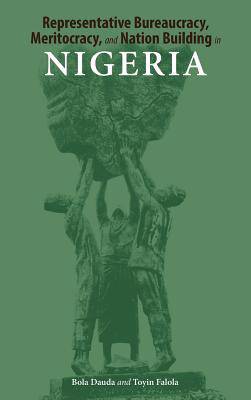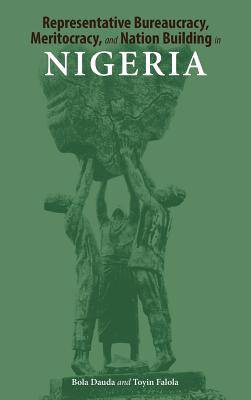
Je cadeautjes zeker op tijd in huis hebben voor de feestdagen? Kom langs in onze winkels en vind het perfecte geschenk!
- Afhalen na 1 uur in een winkel met voorraad
- Gratis thuislevering in België vanaf € 30
- Ruim aanbod met 7 miljoen producten
Je cadeautjes zeker op tijd in huis hebben voor de feestdagen? Kom langs in onze winkels en vind het perfecte geschenk!
- Afhalen na 1 uur in een winkel met voorraad
- Gratis thuislevering in België vanaf € 30
- Ruim aanbod met 7 miljoen producten
Zoeken
Representative Bureaucracy, Meritocracy, and Nation Building in Nigeria
Bola Dauda, Toyin Falola
Hardcover | Engels
€ 169,95
+ 339 punten
Omschrijving
This book is a comprehensive theoretical and empirical investigation of the practical application of representative bureaucracy in Nigeria. Part I consists of four chapters, beginning with a theoretical and an historical overview of representative bureaucracy and policy making in Nigeria. This includes a discussion of the myths, contradictions, and the resultant dilemmas of administration. It highlights the complexities and intricacies of public policy-making, and examines the concept of representative bureaucracy including its meaning, forms, criticisms, prospects, limitations, and history. It also examines the need for administrative reforms, what reforms have taken place, and the country's search for appropriate bureaucracy for nation building. Part II details the objective and empirical facts regarding the representativeness of bureaucracy in Nigeria and its implications. Unlike past approaches, this book provides solid evidence of what difference representative bureaucracy actually makes on the ground. Using a novel and rigorous methodological approach, the actual impact of the civil service on policy-making is assessed and insights are provided into how a more representative bureaucracy affects policy. The approach is enhanced by the authors' advantage as Nigerian scholars who had both worked in the Nigerian political system as civil servant and university professors. This landmark study will be of value to scholars and students of Nigerian and African political, economic, and social development .
Specificaties
Betrokkenen
- Auteur(s):
- Uitgeverij:
Inhoud
- Aantal bladzijden:
- 310
- Taal:
- Engels
Eigenschappen
- Productcode (EAN):
- 9781604979121
- Verschijningsdatum:
- 18/12/2015
- Uitvoering:
- Hardcover
- Formaat:
- Genaaid
- Afmetingen:
- 152 mm x 229 mm
- Gewicht:
- 625 g

Alleen bij Standaard Boekhandel
+ 339 punten op je klantenkaart van Standaard Boekhandel
Beoordelingen
We publiceren alleen reviews die voldoen aan de voorwaarden voor reviews. Bekijk onze voorwaarden voor reviews.









